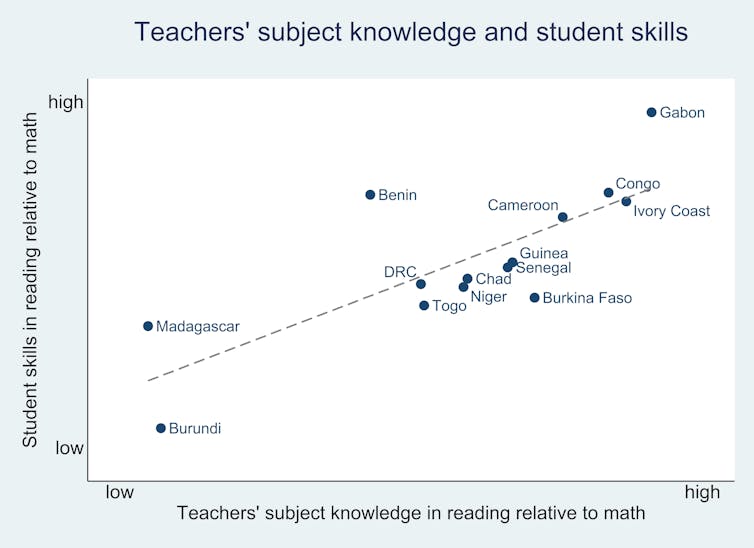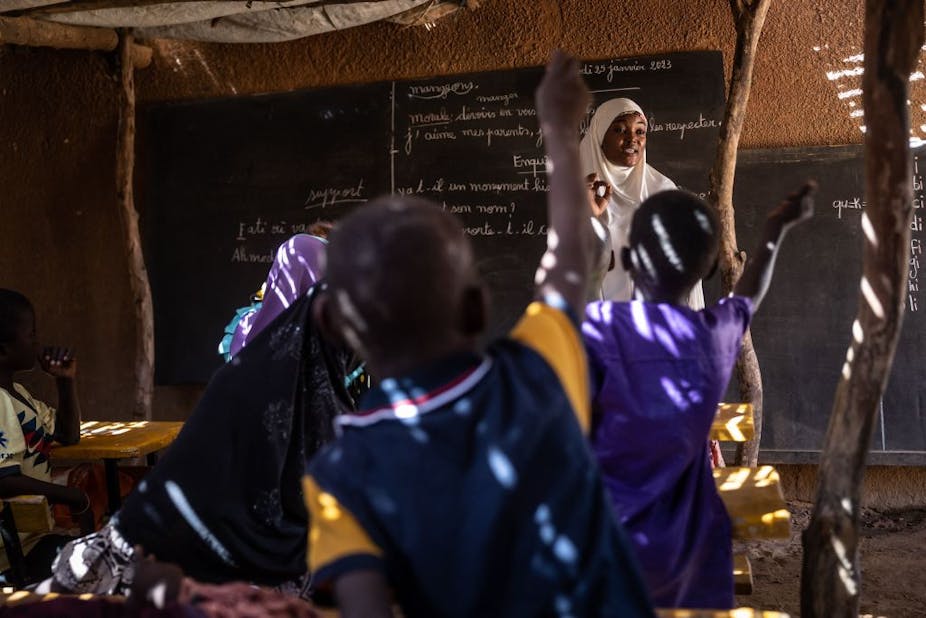Countries in sub-Saharan Africa have made remarkable progress towards reaching universal school enrolment in the past 25 years. Across the region, 8 in 10 children of primary school age are now enrolled in school, and in countries such as Benin and Madagascar this figure stands at almost 10 in 10 children.
However, it is becoming increasingly clear that many children in the region are learning very little in school. This “learning crisis” means that it will be difficult to reach the United Nations’ Sustainable Development Goal of quality education for all by 2030.
Importantly, the learning crisis does not affect all countries equally. For example, a recent study found that whereas almost half of all sixth-grade students (who are on average about 13 years old) in Niger have difficulties reading a simple sentence, only one in 10 sixth-grade students in neighbouring Burkina Faso has such problems. This raises the question of what explains these international learning gaps.
In a recent study, my co-authors Natalie Irmert, Mohammad H. Sepahvand and I tried to answer this question. We hypothesised that differences in teacher quality between countries play a role. Using comparable data from 14 countries in French-speaking sub-Saharan Africa, we found that differences in teachers’ subject knowledge – that is, teachers’ mastery of the material they are expected to teach in a given subject – explain more than a third of the international variation in student learning.
This implies that the very low levels of learning in some countries’ schools are to a large extent due to a lack of knowledgeable teachers.
The research
Our study was made possible by the recent release of data from the PASEC 2019 assessment. The assessment measured sixth-grade students’ reading and maths skills in 14 French-speaking African countries in a comparable way. Importantly for our purposes, it also measured the knowledge of these students’ teachers in the same two subjects. The assessment revealed very large differences in the average reading and maths skills of students between countries.
Read more: Collaboration is helping teachers in rural Cameroon fill knowledge gaps
In our study, we examined whether these international differences in student skills were driven by gaps in teachers’ subject knowledge. We hypothesised that this might be the case based on previous research from individual countries which shows that teacher quality is a key driver of learning.
Our results showed student skills and teachers’ subject knowledge were indeed positively correlated: better teacher knowledge tended to go hand in hand with better student skills.
However, this did not necessarily mean that teachers’ subject knowledge caused learning. For example, countries with more knowledgeable teachers might also invest more into school buildings. In this case, the positive correlation between teacher knowledge and student skills could simply reflect the better learning conditions due to improved school buildings.
Explaining the differences
To be sure that our correlation reflected a causal effect of teacher knowledge, we used a statistical trick: we compared each country’s student skills and teacher knowledge in reading to its student skills and teacher knowledge in maths.
Read more: Girls thrive with women teachers: a study in Francophone Africa
This meant that we could keep all factors that did not differ between the two subjects, such as the quality of school buildings, constant. If better teachers’ knowledge in reading relative to maths tended to go hand in hand with better student skills in reading relative to maths, we could be certain that the effect of teacher knowledge was causal.
The figure below shows that this was indeed the case: for example, Burundi’s teachers scored relatively low on the reading test relative to the maths test, and consequently its students did worse in the reading assessment than in the maths assessment. In contrast, Gabon’s teachers were relatively more knowledgeable in reading, and therefore its students also performed better in the reading test.

Overall, differences in teachers’ subject knowledge could explain a third of the differences in student learning between the 14 countries. Our data did not allow us to conclude which factors explain the remaining two thirds of these differences.
Implications for policy
Our results show that teacher quality, and especially teacher subject knowledge, is a crucial driver of cross-country differences in learning. This is an important insight for policymakers in sub-Saharan Africa who are trying to solve the “learning crisis”: it shows that there is a large payoff to recruiting more knowledgeable teachers.
Additionally, in-service training that improves the knowledge of already employed teachers could lead to large gains in student learning.

